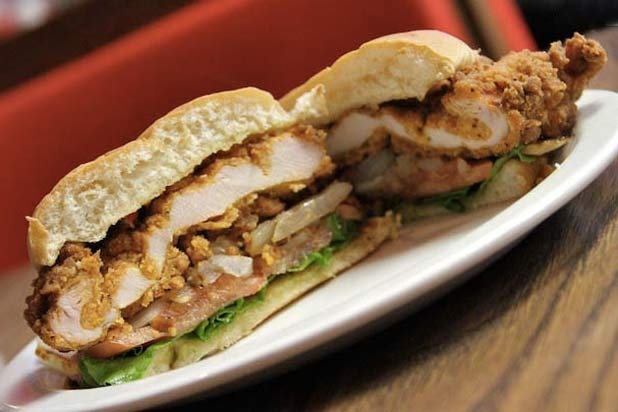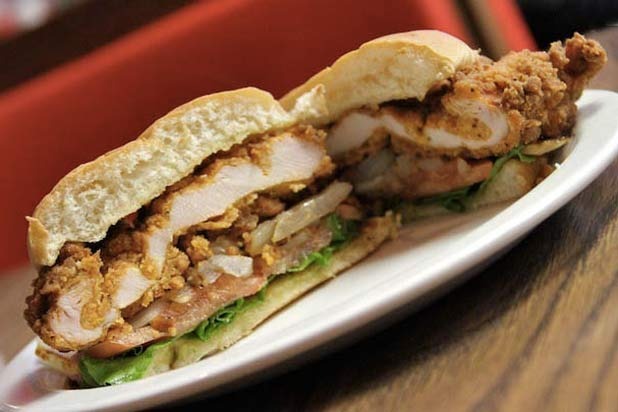More Facts And Controversies Regarding Chick-Fil-A Slideshow
The Dwarf House (The Original Chick-fil-A), Hapeville , Ga.
The Dwarf House started in 1946 in Hapeville when "a young man named Truett Cathy and his brother Ben pooled their savings, sold their car, and took out a loan to come up with $10,000 to open the Dwarf Grill." It had 10 counter stools and four tables. They pulled in $58.20 the first day and have been open 24 hours a day ever since (except Sundays — "of course," the menu notes).
There are 11 Dwarf House locations in the Atlanta-metropolitan area. At the original, there is a small door in the front and a strange motorized Snow White-esque dwarf display in back. The main difference between The Dwarf House and other Chick-fil-A locations is it's a full-service restaurant in addition to the fast-food. You can find chicken pot pie, fried okra, rib-eye steak, and the hot brown platter (chicken in a thick cream sauce topped with Cheddar, paprika, bacon, and toast), and other items you won't find in your average Chick-fil-A. Read more about the Dwarf House.
Chick-fil-A and Christianity
Chick-fil-A's founder, S. Truett Cathy is known as a devout Southern Baptist whose religious beliefs have a huge impact on his company. The Chick-fil-A site notes that the company's "corporate purpose," is "To glorify God by being a faithful steward of all that is entrusted to us. To have a positive influence on all who come in contact with Chick-fil-A. Forbes has estimated Chick-fil-A's sales at $3 billion, and that keeping the Sabbath holy "costs the company $500 million in annual revenues."
Lawsuits Against Chick-fil-A
Forbes reported that according to records in U.S. District Courts, the corporate parent of Chick-fil-A has been sued at least 12 times since 1988 on charges of employment discrimination. In 2002, a former Chick-fil-A restaurant manager in Houston named Aziz Latif sued Chick-fil-A after Latif, a Muslim, said he was fired in 2000, a day after not participating in a group prayer to Jesus Christ at a company training program. The suit was settled on undisclosed terms.
Chick-fil-A Ruffles Feathers Over "Eat More Kale"
A "folk artist" trademarked "Eat More Kale" after screen printing the phrase onto T-shirts and sweatshirts to sell, only to get into a legal fight with the second-largest chicken chain in the U.S. Instead of protecting his business, chain restaurant Chick-fil-A decided Muller-Moore was infringing on their business, ordering him to stop using the phrase and turn over his web site, eatmorekale.com.
The Chick-fil-A trademark often has a cow holding a sign that reads, "Eat mor chikin." Chick-fil-A lawyers say the slogan "Eat More Kale" is "likely to cause confusion of the public and dilutes the distinctiveness of Chick-fil-A's intellectual property and diminishes its value." Obviously, Muller-Moore's lawyer disagrees, saying, "This looks a bit like an example of over-enthusiasm for brand protection."
Grilled Chicken and Cancer
In 2006, the Physicians Committee for Responsible Medicine sued Chick-fil-A as part of a lawsuit against it and McDonald's, Applebee's, Outback, Chili's, TGI Friday's, and Burger King, asserting that cooking certain meats, including chicken, at high temperatures causes them to contain PhIP. This chemical compound is one that had caused cancer in lab rats and mice. A ruling in 2009 for the defendants was followed in August 2010 with an appeal in favor of the plaintiffs. The matter has supposedly not been resolved and is still before the California courts.





